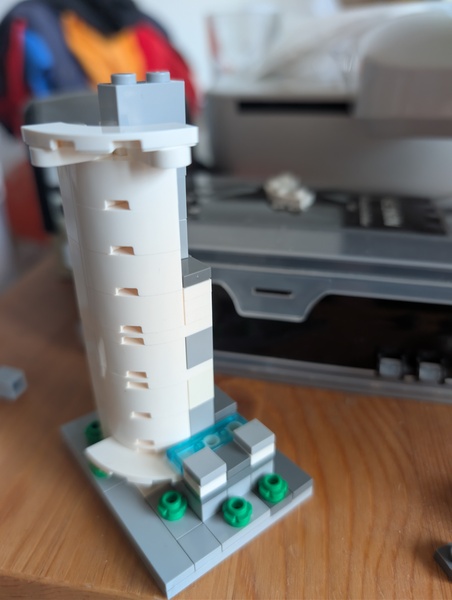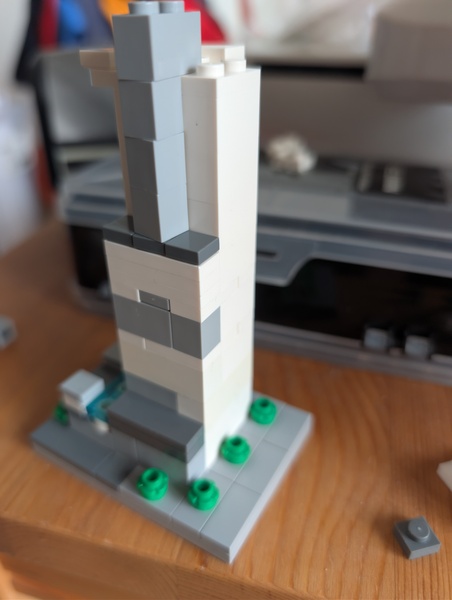From time to time, I look back and take tally of what programs and modules
I released in the past. This is one of these posts.
This module is a clone of the Mixmark turndown library,
which converts HTML into Markdown.
my $markdown = html2markdown('<h1>Hello World</h1>');
# Hello World
The module is highly convenient for my
note-taking tool, which lets
me edit notes as contentEditable HTML to enable formatting and pasting
of images etc. .
Other times, I want to do quick text editing, and using Markdown is far more
convenient than editing HTML on my mobile phone. As I store the documents not
as HTML but Markdown, converting from HTML/contentEditable to Markdown is
helpful here.
The nice thing about this module is that I chose to reuse the test suite of
the turndown Javascript library and styled the code similarly to the
Javascript example. That made porting some changes in the Javascript library
to Perl very easy, even if I don't strive for 1:1 identity.
Date::Find - extract dates from filenames
Together with the app move-year, this is a nifty tool to watch my download
directory and move bank statement .pdf files into the corresponding
directories organized by year. Often these files are named in weird ways
like statement-03.01.2025.pdf or accountstatement-2025-january.pdf, but I
want them in a directory bankstatements/2025/ . Date::Find looks at the
filenames and finds the year (and month, and day). The app then creates the
appropriate year (or month, or day) directory and moves the file there.
As my note-taking tool fetches link previews, I want to be a bit more cautious
as to what URLs I freely fetch. This adapts
Net::DNS::Paranoid and the
ruleset to also work for Mojolicious.
What I did not release
That link preview/card generation thing - postponed
Mojolicious::Plugin::UrlWithout
A small HTML page helper that returns an URL without a given key/value combination:
my $url = "/filter?label=foo&label=bar";
my $other = url_without( "/filter", label => 'foo' );
# /filter?label=bar
This module sounded like a really good idea, so I wrote it. The use case was a
search/filter page, where you can toggle different labels by clicking on them.
The labels were realized as <a href=... elements. Then I realized I don't
need it at all, if I switch my HTML to a form with GET and use HTMX to
automatically update the filter:
<form method="GET" action="/filter" hx-get="/filter" hx-trigger="change from:input changed">
<label for="label-foo">foo</label><input type="checkbox" checked name="label" value="foo" />
<label for="label-bar">bar</label><input type="checkbox" checked name="label" value="bar" />
<button type="submit" class="nojs">Apply</button>
</form>
Patches I contributed
I contributed a small change to the
DBD::SQLite catalog functions so it
now also knows about generated columns in a table. Funnily, the old SQLite
function was named table_info, and the function including the generated
columns is named table_xinfo . I guess once there is another type of
information to return, they will need to add table_yinfo, or move to the
Microsoft-stlyle of having table_info_ex(), with another parameter listing
the information actually wanted by the caller.
Patches that were not applied (yet)
Together with Mojo::UserAgent::Paranoid, I also
added IPv6 support to Net::DNS::Paranoid,
but my changes have not yet been reviewed or accepted.
I use that patched module locally, and there it works well.
This is my yearly look at Android Desktop Mode.
The idea is to use my phone, docked to a screen, keyboard and mouse as a remote desktop platform. The goal is to run a remote desktop through RDP,
Citrix Workspace, or another such app, and use MS Teams and other stuff
supplied by that remote machine/VM. That way, I would not need a laptop since my phone has enough power to do the RDP thing.
Phone version
Pixel 9 XL
GrapheneOS 20251225
Android 16
Setup 1 ("Amazon Basics")
Phone connected to Amazon Basics USB-C docking station with HDMI display
Screen gets recognized and added (1600x900 or 1920x1080 resolution), a taskbar shows up at bottom, but no tasks other than Camera can be launched from it. After the screen lock activates, the taskbar is gone. Mouse works, keyboard not tested (?!). Taking a screenshot of the Android Desktop is not possible.
Setup 2 ("HP")
Phone connected to HP USB-C docking station with HDMI display.
What works in Android 16
HP: Desktop appears on HDMI screen, mouse and keyboard work. Taskbar at the bottom of the HDMI screen. Remote desktop works and displays. Phone-local apps and the remote desktop can live on the phone desktop and can be resized without problem.
What doesn't work in Android 16
HP: Screen resolution is weird. Smaller screen space, but pixel count seems to be full-width and then scaled down to smaller screen space.
Fennec HTML zoom is very weird and seems to orient itself on the phone-screen measurements, not on the HDMI screen measurements. Further debugging is needed.
External camera and microphone don't seem to work with the Citrix Workspace app.
I built my first MOC using Lego-compatible Building Bricks (German: "Klemmbausteine"). I saw the inspiration and main baseline in a photo by a colleague on LinkedIn
where they had built a model of our skyscraper office building. Having not played with Lego bricks for a long time, I gave in and tried to build something similar
to the photo.
But first, the result:

For some reason, I did not remember the premier modeler, LDraw, so I went with the 3D builder offered by Mecabricks.
The builder works fairly well, but you cannot save/export your model without signing up.
After being satisfied with my rebuilding after the photo, I manually created the CSV import for upload with MOC brick store. The upload failed to match
discontinued parts with their replacements or unavailable colors, so I had to do some manual replacements in my CSV import. The import also did not allow for easy checking of which parts were unavailable,
so I had to do the complete order manually, working from my CSV file instead of uploading the CSV file. The shipping was roughly as expensive as the blocks, but that's expected for something coming from China.
This ended up with me mis-ordering one brick type. Luckily I ordered one more than needed from every brick type so I still could make things work in the end and I am happy with the final product:

My development workflow looks something like this
- Implement feature 1
- Implement another feature 2
- Bug fixes for something in feature 2
- Bug fixes for feature 1
- More bug fixes for something in feature 2
This results in a git history like the above, which I then interactively rebase into
add Implement feature 1
squash Bug fixes for feature 1
add Implement another feature 2
squash Bug fixes for something in feature 2
squash More bug fixes for something in feature 2
The git absorb command automates part of the rebase by looking at the currently staged hunks and finding the commit that most recently changed lines in that hunk, and squashing that hunk in that commit:
git add app.pl -p # add the parts for feature 1 and feature 2 that don't overlap
git absorb

A classic Metroidvania, doing fights and exploring a vast area. They have a really interesting mix of music and bugs as a theme, where the music becomes more and more central throughout the progress of the story.
It's not easy at the start, but it is not super hard either. The difficulty ramps up a lot.
My main gripe is that there is no downwards attack - I kept on jumping / hitting on enemies below me, Super Mario style. That was, until I discovered that Attack+Down actually does a downwards attack.
The first three levels / maps were fairly easy. I'm now close to the second act, but each boss fight needs some training/repetitions to figure out the rhythm of the boss.
Played on:
- PS4
- Windows (Controller really recommended)
Using a Steam Controller with GoG Silksong required launching the game from Steam.
- Steam Deck (Windows GoG version via Heroic)
Getting the Steam Deck controller to work with the Linux version of Silksong failed with the same symptoms as on Windows. Launching the Windows version through Steam -> Heroic -> Silksong worked and also made the controller buttons work. Weirdly enough, this is the version I like most. Both the PS4 version as well as the Windows+Controller version felt not as tight as the Steam Deck


